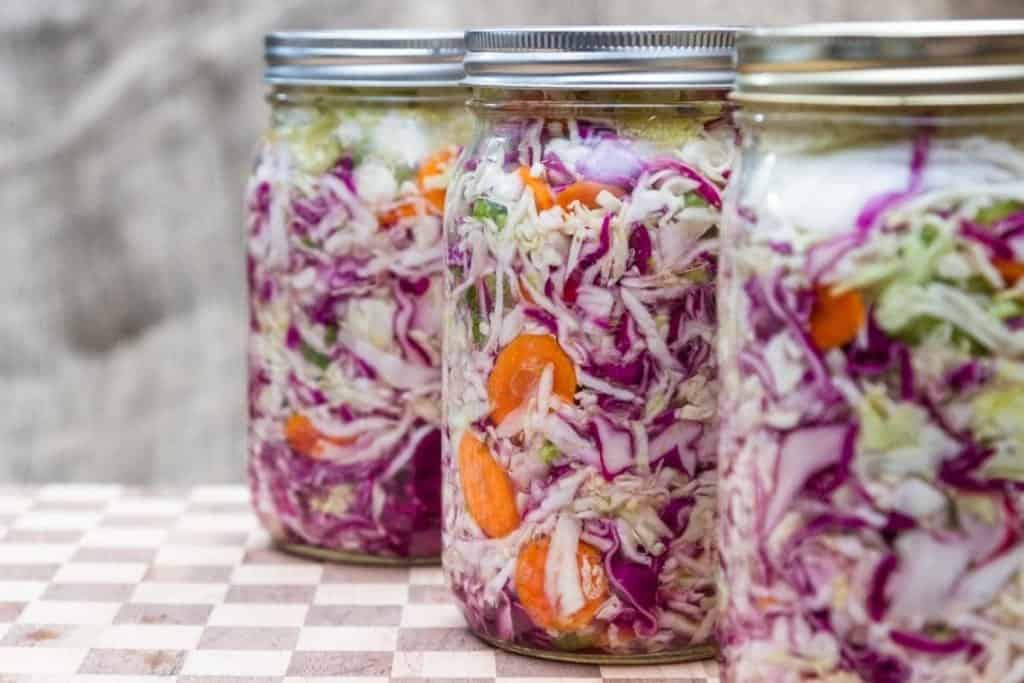Gut Health & Autoimmune Disease
The connection between gut health & autoimmune disease is a growing area of research that offers hope for better management and prevention strategies. At Vibrant Nutrition, we’re committed to helping you understand how your gut influences your immune system and overall well being.
What Are Autoimmune Diseases and How Are They Linked to the Gut?
Autoimmune diseases occur when the immune system mistakenly attacks the body’s own tissues, treating them as foreign invaders. This can lead to conditions like rheumatoid arthritis, lupus, multiple sclerosis, type 1 diabetes, and inflammatory bowel disease (IBD). While genetics play a role, environmental factors—including gut health—are increasingly recognised as key contributors to the development and progression of these conditions.
The gut, often called the "second brain," houses 70-80% of the body’s immune cells within the gut-associated lymphoid tissue (GALT). It also hosts trillions of microorganisms collectively known as the gut microbiome, which regulate immune function, digestion, and inflammation.
When the gut microbiome is imbalanced (a condition called dysbiosis) or the gut lining becomes permeable (leaky gut), it can trigger inflammatory responses that activate the immune system in harmful ways. This dysregulation is now understood to be a critical factor in the onset and exacerbation of autoimmune diseases.
Research suggests that a compromised gut barrier allows undigested food particles, toxins, and bacteria to enter the bloodstream, prompting an immune response that may mistakenly target healthy tissues. This process, combined with chronic inflammation, creates a vicious cycle that can perpetuate autoimmune conditions. Understanding this link is the first step toward addressing it effectively.
Signs of Gut Health Issues Related to Autoimmune Diseases
Poor gut health can manifest in ways that overlap with autoimmune symptoms, making it essential to recognise the signs. Below are the key indicators, grouped into three categories:
1. Digestive Symptoms
- Chronic bloating, gas, diarrhoea, or constipation
- Food sensitivities and abdominal pain
- Inflammation in the gut lining triggering immune responses
2. Systemic Inflammation and Fatigue
- Persistent fatigue, joint pain, or muscle stiffness
- Brain fog, mood swings, and difficulty concentrating
- Imbalances in the gut-brain axis
3. Skin and Immune-Related Issues
- Skin conditions like eczema, psoriasis, rosacea, or rashes
- Frequent infections or slow healing wounds
- Weakened immune system linked to gut barrier issues
These symptoms can vary widely and may not always point directly to gut issues, so consulting a nutritionist for tests (e.g., stool analysis, zonulin levels) is recommended for an accurate diagnosis.
The Role of Inflammatory Responses in the Gut-Autoimmune Connection
Inflammatory responses are at the heart of the gut-autoimmune link. When the gut microbiome is imbalanced, harmful bacteria can outnumber beneficial ones, leading to chronic inflammation. This inflammation can damage the gut lining, increasing permeability and allowing harmful substances to leak into the bloodstream—a condition known as leaky gut. Once in the bloodstream, these substances trigger an immune response, releasing pro-inflammatory cytokines that can activate autoreactive immune cells.
Over time, this chronic inflammation can confuse the immune system, causing it to attack healthy tissues and contribute to autoimmune diseases. For example, in rheumatoid arthritis, gut dysbiosis has been linked to increased levels of inflammatory markers like TNF-alpha, while in IBD, inflammation directly damages the intestinal lining. Stress, poor diet, and environmental toxins can further amplify these inflammatory responses, creating a feedback loop that worsens both gut health and autoimmune symptoms.
Strategies to Support Gut Health and Reduce Autoimmune Triggers
At Vibrant Nutrition, we advocate for a holistic approach to improving gut health and managing autoimmune diseases. By addressing inflammatory responses and supporting the gut microbiome, you can reduce autoimmune triggers and enhance your overall health. Below are the key strategies:
1. Adopt an Anti-Inflammatory Diet
Diet is a powerful tool for reducing inflammation and supporting gut health. Avoid processed foods, refined sugars, and trans fats, which can promote dysbiosis and inflammation. Instead, focus on:
- Whole Foods: Leafy greens, berries, and fatty fish (e.g., salmon) are rich in antioxidants and omega-3s that combat inflammation.
- Fermented Foods: Yoghurt, kefir, and sauerkraut provide probiotics to restore gut microbiome balance. Note: If you have SIBO or histamine intolerance, avoid fermented foods until resolved as they can exacerbate symptoms.
- Fibre-Rich Foods: Oats, chia seeds, and vegetables feed beneficial gut bacteria and support digestion.
2. Incorporate Probiotics and Prebiotics
Probiotics introduce beneficial bacteria to the gut, while prebiotics (e.g., inulin from garlic or onions) nourish existing good bacteria. Supplements with strains like Lactobacillus and Bifidobacterium can help reduce inflammation and strengthen the gut barrier. Fermented foods also provide a natural source of probiotics to support gut health and autoimmune diseases.
3. Manage Stress and Support Mental Health
Chronic stress increases cortisol levels, which can disrupt the gut microbiome and exacerbate inflammatory responses. Incorporate stress-reducing practices like meditation, yoga, or deep breathing exercises. Adequate sleep (7-9 hours per night) is also essential, as it supports gut repair and immune regulation.
4. Avoid Gut Irritants and Environmental Toxins
Limit exposure to gut irritants like alcohol, NSAIDs (e.g., ibuprofen), and artificial sweeteners, which can damage the gut lining and promote inflammation. Reduce environmental toxin exposure by choosing organic produce, filtered water, and non-toxic household products when possible. These steps help minimise autoimmune triggers and support gut integrity.
5. Work with a Professional for Personalised Support
Autoimmune diseases and gut health are highly individual, so a one-size-fits-all approach may not suffice. Work with a nutritionist or naturopath to identify food sensitivities (e.g., gluten, dairy), test for gut dysbiosis, and develop a tailored plan. Supplements like omega-3s, vitamin D, or glutamine may also be recommended to repair the gut lining and reduce inflammation.
How Long Does It Take to See Improvements?
The timeline for improving gut health and reducing autoimmune symptoms varies depending on the severity of dysbiosis, inflammation, and the specific autoimmune condition. Mild improvements, such as reduced bloating or fatigue, may be noticeable within 1-2 weeks of dietary and lifestyle changes. More significant changes, like reduced joint pain or improved immune function, may take longer, especially in chronic cases. Consistency is critical, and ongoing collaboration with a nutritionist can ensure sustained progress.
Opinion from Nutritionist Lisa Snowdon
The link between gut health and autoimmune diseases is profound, and addressing inflammatory responses is key. I’ve seen clients achieve remarkable improvements by adopting an anti-inflammatory diet, incorporating probiotics, and managing stress.
It’s not just about symptom relief—it’s about healing the gut to support the immune system long-term. Personalisation is crucial, as triggers vary widely. Always work with a professional to identify your unique needs and monitor progress safely.
Conclusion
The connection between gut health and autoimmune diseases underscores the importance of nurturing your gut microbiome and managing inflammatory responses. By adopting an anti-inflammatory diet, reducing stress, and working with a professional, you can address autoimmune triggers and enhance your wellbeing.
At Vibrant Nutrition, we’re here to support your journey to optimal health. For more information on our Gut Fix program and the 7-Step healing method we use click below.


